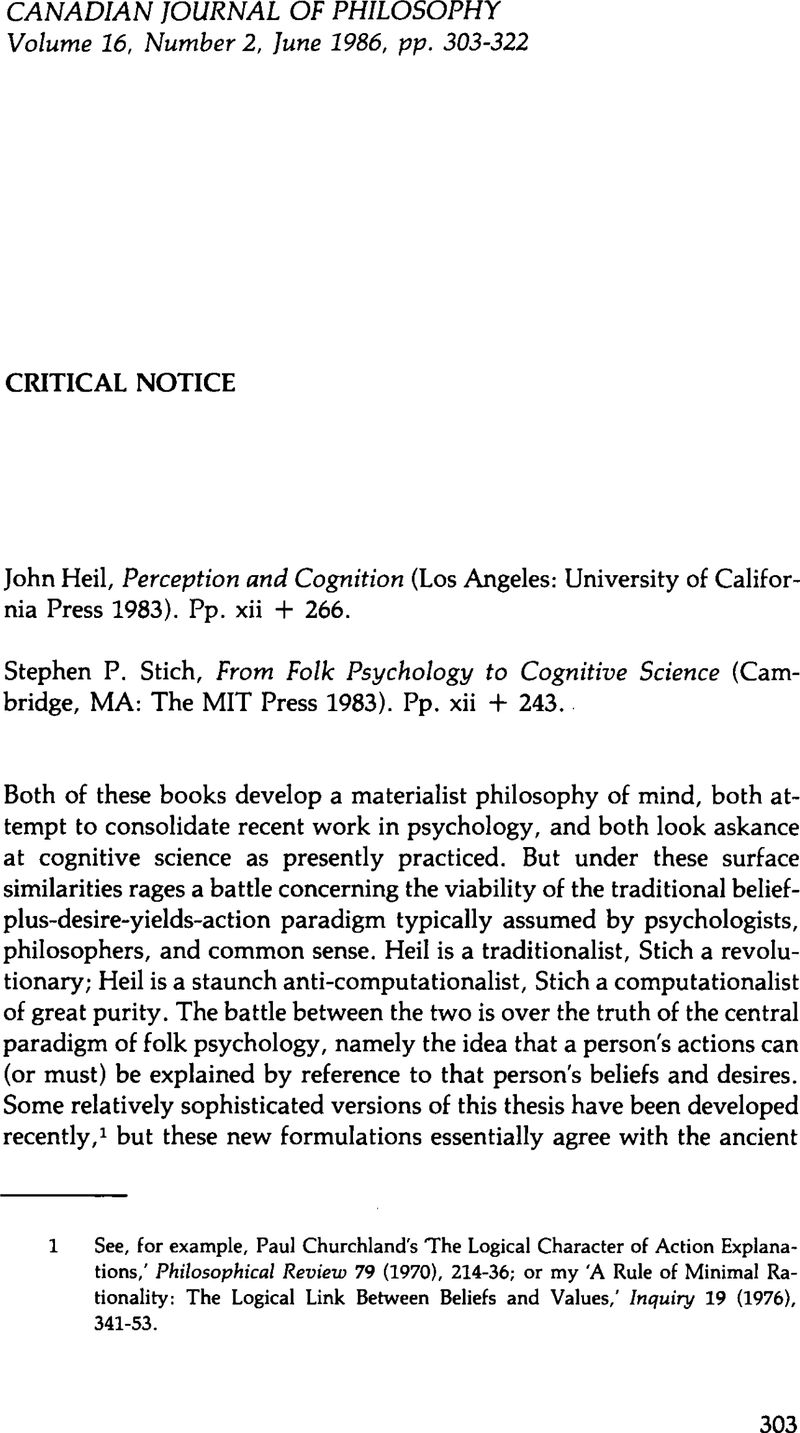No CrossRef data available.
Published online by Cambridge University Press: 01 January 2020

1 See, for example, Churchland's, Paul ‘The Logical Character of Action Explanations,’ Philosophical Review 79 (1970), 214–36CrossRefGoogle Scholar; or my ‘A Rule of Minimal Rationality: The Logical Link Between Beliefs and Values,’ Inquiry 19 (1976), 341-53.
2 This is a doubtful supposition, I think, and so I argue in my ‘A Materialist's Misgivings About Eliminative Materialism,’ in the 1985 Supplementary Volume of this journal, New Essays In The Philosophy Of Mind, edited by David Copp and J.J. Macintosh.
3 Quine, W.V.O. The Philosophy of Logic (Englewood Cliffs, NJ: Prentice-Hall 1970). 33–4Google Scholar
4 Gibson, J.J. The Ecological Approach to Visual Perception (Boston: Houghton Mifflin 1979), 3Google Scholar
5 Heil treats having information and having beliefs synonymously throughout the book. He only occasionally, and in passing, takes note of the practice, as on 34, 61, and 216.
6 See Heil, 102-8.
7 For a defence of the viability of folk psychological descriptions and explanations, see my ‘A Materialist's Misgivings About Eliminative Materialism,’ cited above. My point is not that such descriptions are incorrect or false, but that they are of little scientific use.
8 Llinas, Rudolfo and Pellinosz, Andras ‘Brain Modeling by Tensor Network Theory and Computer Simulation. The Cerebellum: Distributed Processor for Predictive Coordination,’ Neuroscience 4 (1979), 323–48Google Scholar; this is but one of many kindred publications; see bibliography of this publication.
9 See my ‘A Materialist's Misgivings About Eliminative Materialism,’ cited above, for more detail on the depth of various philosophers’ commitment to eliminative materialism.
10 W.V.O. Quine 3, 8, and 3, respectively
11 Fodor, Jerry ‘Something On The State Of The Art,’ in his Representations (Cambridge Mass: MIT Press 1981), 25–6Google Scholar
12 This point was suggested to me by Charles Morgan in conversation.
13 Sellars, Wilfred Science and Metaphysics (London: Routledge and Kegan Paul 1968), 71–7Google Scholar